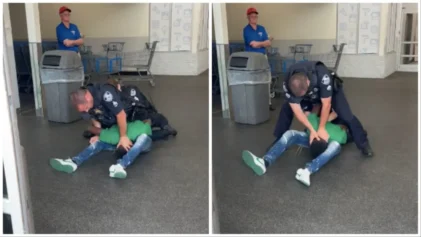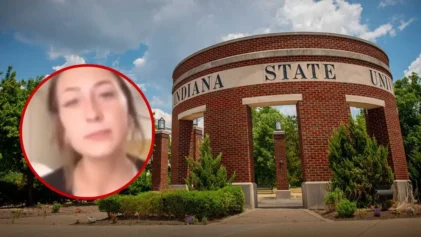KATC.com | Continuous News Coverage | Acadiana-Lafayette
A St. Martinville, La., police chief has begun enforcing the Blue Lives Matter law passed in the state last year that will grant officers hate-crime protection from suspects resisting arrest.
Police Chief Calder Hebert told local news outlet KATC ABC News 3 that he hopes the new law will make offenders reconsider resisting arrest or trying to assault officers. “We don’t need the general public being murdered for no reason,” Hebert says. “And we don’t need officers being murdered for no reason. We all need to just work together.”
Last May, Democratic Gov. John Bel Edwards signed the Blue Lives Matter bill into law, making Louisana the first state in the country to give public safety workers — police officers, firefighters and emergency medical service workers — protection under hate crime laws. The bill took effect in August.
“Resisting an officer or battery of a police officer was just that charge, simply,” Herbert explains. “But now, Gov. Edwards, in the legislation, made it a hate crime now.”
Herbert believes that police and the public should work together. “And if someone happens to be involved in criminal activity, let the courts handle it. Don’t resist physically,” he tells reporters.
Other states and cities around the nation have followed suit and attempted to implement similar legislation.
After the Dallas police shooting that claimed five officers’ lives last July, Wisconsin Rep. David Steffen proposed a bill that would protect officers in the line of duty. Florida state representatives, a Kentucky representative and a Chicago alderman also put forth plans to create bills.
Mississippi Senate Judiciary Committee passed a “Blue Lives Matter” bill Tuesday, Jan. 24 that can become law if both houses pass it. If that happens, the law will take effect in July.
“These guys go out there every day and the main goal is to protect the public and go home at the end of the day,” Hebert says. “This is one step in making that happen. Hopefully, the rest of the nation follows suit.”


